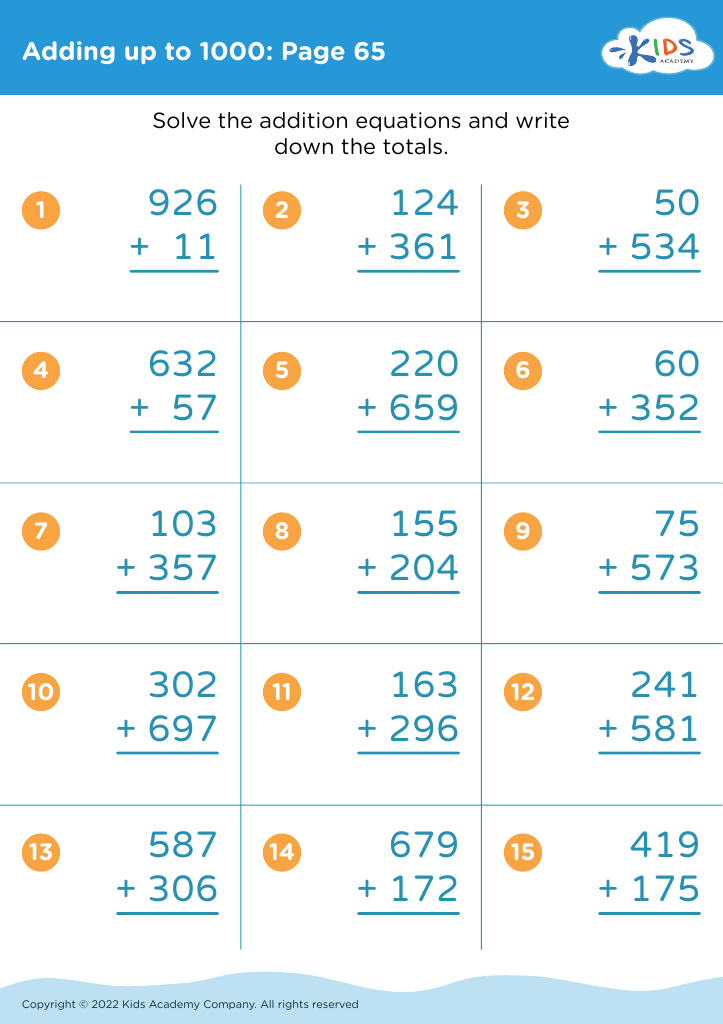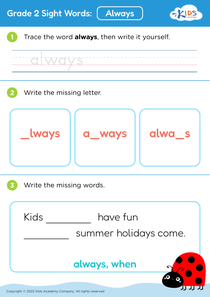Sequencing Skills Grade 2 Addition Worksheets
3 filtered results
-
From - To
Enhance second graders' math proficiency with our Sequencing Skills Grade 2 Addition Worksheets! These expertly designed activities help kids master addition while boosting their understanding of number sequences. Through engaging exercises, students practice adding two-digit numbers and placing them in the correct order. Each worksheet is crafted to fortify fundamental math skills, ensuring a solid foundation for advanced concepts. These sequencing activities not only improve numerical fluency but also strengthen logical thinking and problem-solving abilities. Perfect for classroom use or at-home practice, our worksheets make learning addition enjoyable and effective. Empower your child's math journey with Kids Academy today!
Parents and teachers should care deeply about sequencing skills in second-grade addition because these skills form the cornerstone of mathematical proficiency and broader cognitive development. Sequencing, which involves understanding and implementing the correct order of steps to solve problems, is critical in applying basic arithmetic operations effectively. Mastery in second-grade addition sequencing ensures that children can tackle more complex mathematical concepts with confidence as they progress through their education.
By focusing on sequencing skills, we enhance students' ability to follow multi-step processes, bolstering their logical thinking and problem-solving capabilities. This foundation also reinforces their understanding of number relationships and the consistency of mathematical rules, leading to more accurate and efficient computational strategies. Moreover, sequencing skills have far-reaching implications beyond math; they are vital in reading comprehension, writing, science experiments, and everyday tasks, such as following instructions.
Furthermore, children who grapple with sequencing may experience frustration and diminished academic self-esteem, impacting their overall attitude toward learning. Early identification and support in this area allow children to develop resilience and a positive relationship with mathematics, setting them up for future success in both academic endeavors and real-life situations. Thus, prioritizing sequencing skills in second-grade addition ensures a well-rounded, competent, and confident learner.
























